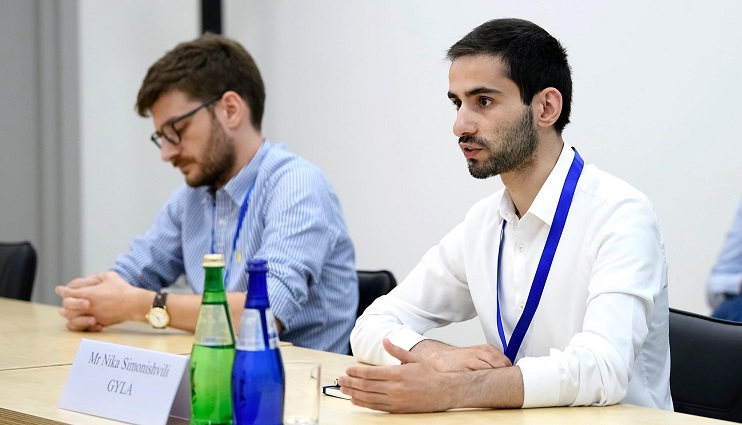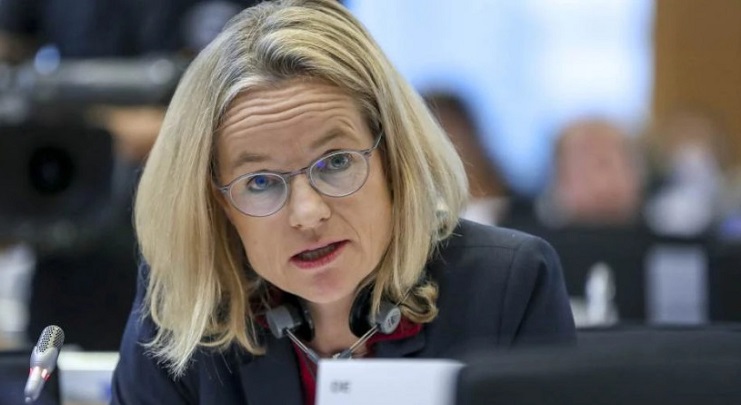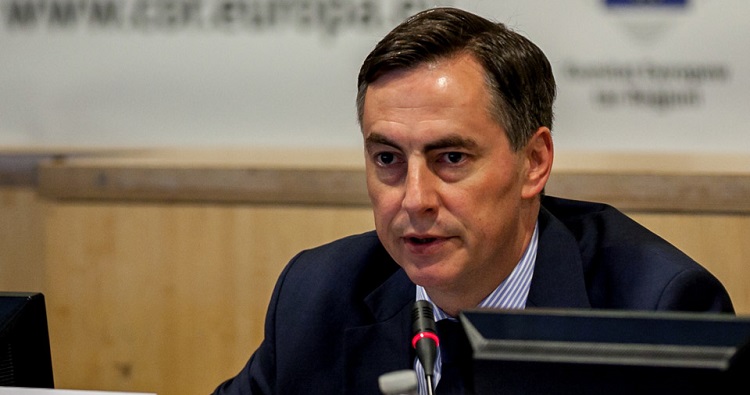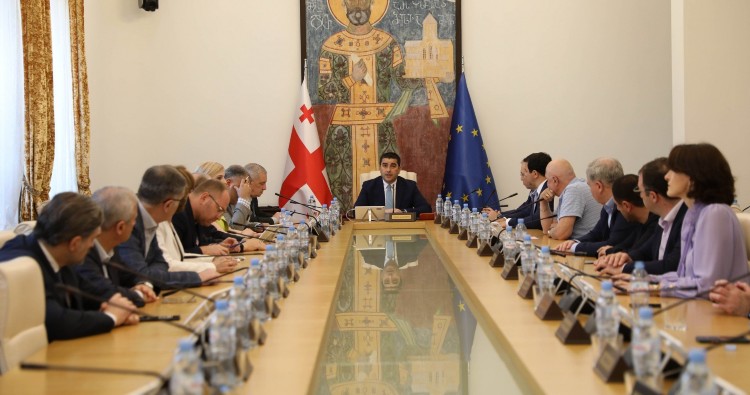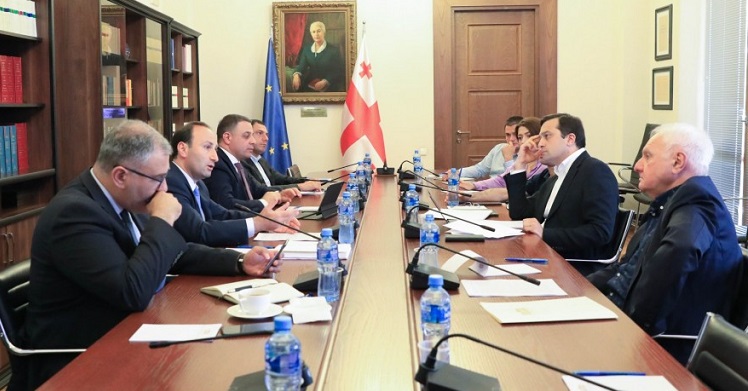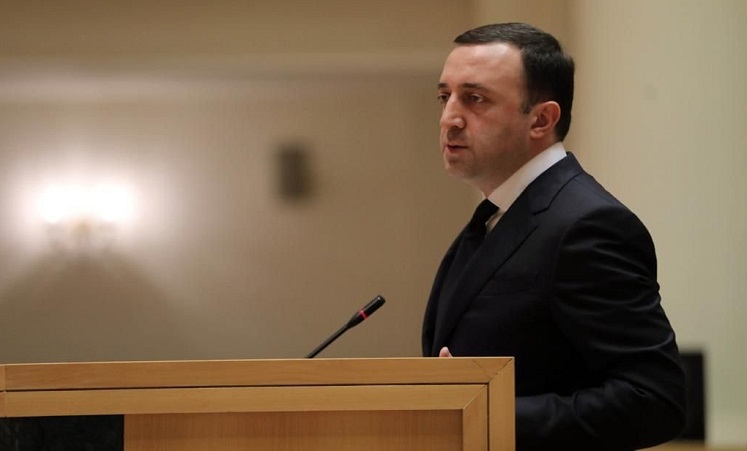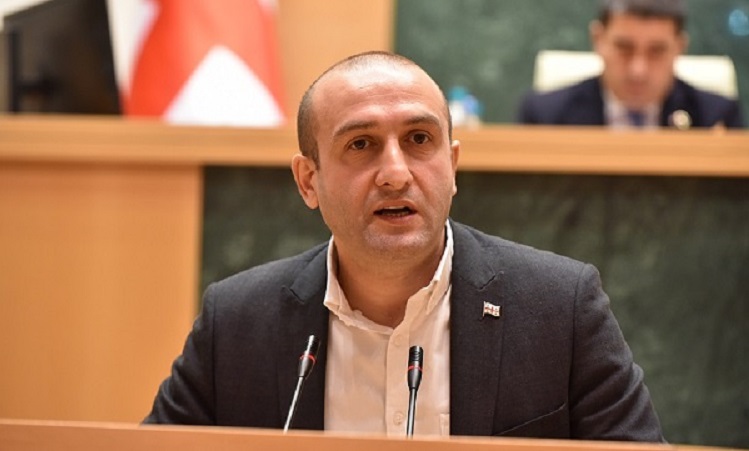Opposition “trying to discredit Parliament” after plans for technocratic Gov’t “failed” - Parliament Speaker
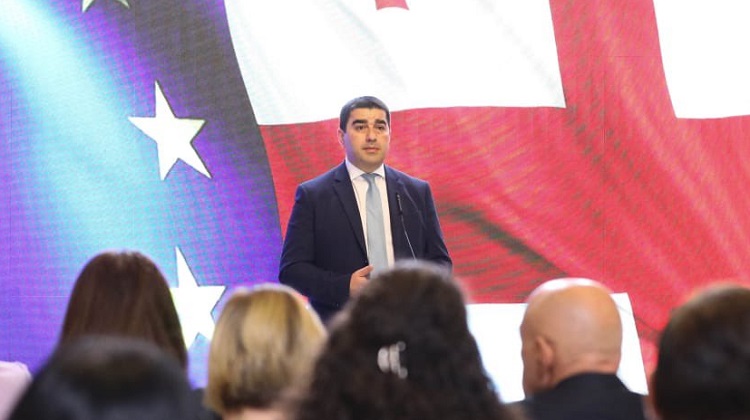
The Georgian Parliament Speaker Shalva Papuashvili on Tuesday said the ruling party-proposed working group for Georgia’s EU candidacy had already addressed several recommendations of the bloc. Photo: Shalva Papuashvili’s Twitter page.
Plans of the “radical opposition” to form a technocratic Government in Georgia have failed, with the group now trying to “discredit” the state legislature through the formation of a parallel working format for work on Georgia’s EU candidacy, Parliament Speaker Shalva Papuahsvili said at a briefing on Tuesday.
Accusing the three opposition parties, the United National Movement, Lelo and the Strategy Agmashenebeli, of “playing a dangerous, anti-constitutional game against the Parliament elected by the Georgian people”, Papuashvili suggested that the opposition's decision to form a separate working group “contradicted” the first recommendation of the European Commission over depolarisation of a domestic political environment.
Speaking about the results within the ruling Georgian Dream party-proposed working group, which was launched three weeks ago, Papuashvili suggested that the portion of the EU recommendations related to the Parliament's supervisory functions, judiciary reforms, justice issues and others have been addressed with the involvement of four parliamentary opposition parties and the civic sector.
17 meetings of committees and working groups have already been held, with preliminary results on some of the conditions. The Georgian Dream, Girchi, European Socialists, Citizens and the For Georgia, five of eight parliamentary groups, are involved in the process which aims to ensure Georgia’s European Union membership candidate status”, Papuashvili said.
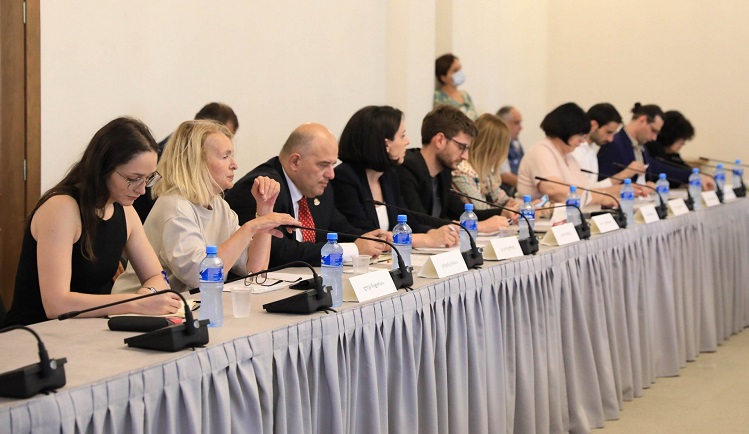 The Parliament Speaker has held several meetings with civic sector representatives to meet the EU conditions over candidacy. Photo: Parliament of Georgia press office.
The Parliament Speaker has held several meetings with civic sector representatives to meet the EU conditions over candidacy. Photo: Parliament of Georgia press office.
Returning to the three opposition parties’ “destructive plans”, Papuashvili said that the European Parliament delegation, on visit to Georgia last week, encouraged the opposition to join the working process along with the ruling party and other players.
However, they [the opposition] have refused to do so and instead announced street rallies starting September 1,” said the Parliament Speaker.
He welcomed the “negative assessments” being made by several MEPs and the civic sector representatives over the opposition’s move to form a separate working group, “harming Georgia’s European prospects”.
Georgia has several months to address the 12 conditions of the European Commission to receive the European Union membership candidate status reportedly next year.
Georgia’s foreign partners have called on the country’s political elite to “get united for common goals”.
 Tweet
Tweet  Share
Share

